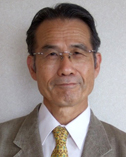
Mitsuhiro Yanagida
Okinawa Institute of Science and Technology Graduate University
|
Primary Section: 26, Genetics Membership Type:
International Member
(elected 2012)
|
Biosketch
I was born in Tokyo on 1941. Learned biochemistry at Tokyo University, Faculty of Science, Department of Biophysics and Biochemistry, then to the graduate school of the same department (doctoral degree 1970). In 1967, joined University of Geneva, Institute of Molecular Biology, Switzerland under the guidance of Prof E. Kellenberger. I greatly enjoyed learning vital essence of molecular biology there. In 1970, moved to USA, giving me an opportunity to learn USA society and people. Then I was lucky to be selected at Department of Biophysics, Kyoto University in 1971 as associate professor and to full professor 1977, and greatly enjoyed working and thinking there until 2011 (retired)). My research was supported by my wife Shigemi at home who made a wonderful happy family with three children (Kyoko, Ryoya, Tetsuya). Also so many talented excellent graduate students came and stayed. My topics included the assembly of bacteriophage T4 (1970-1979), genetic control of chromosome dynamics during eukaryotic mitosis (1978-current). After 2011, I moved to Okinawa, initiating to study completely new subjects (see below). I received the Merit of Culture in 2011, elected to the foreign membership of US National Academy of Sciences, Royal Society of London and European Molecular Biology Organization.
Research Interests
How fission yeast condensin and cohesin can regulate chromosome structure in mitosis. This question is intriguing to me, as these two complexes are similar in structure, but their role in chromosome dynamics look quite distinct. We identified a number of fission yeast genes required for G0 quiescence, and are trying to understand their role in the entry into, maintenance of and exit from quiescence. These two are old and new questions for me. We started to work on human metabolomics since our new Okinawa lab started 10 yr ago. The study was rapidly progressed and we are fairly confident that metabolomics will be a main tool to diagnose health and disease of human individuals. We have so far investigated metabolites in blood, urine and saliva and their significant changes of specific makers (biomarkers) and variations during human aging and also in fasting, and in diseases such as frailty and Alzheimer.

